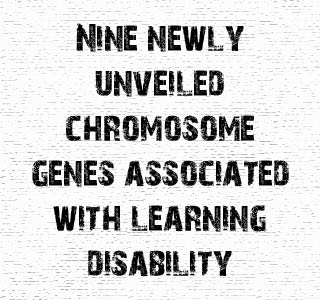
It is stated that learning disability is more prevalent in men as compared to women. This has long been associated with the X chromosome. Since men have only one X chromosome, they are believed to relatively be more prone to experience the effects of a genetic mutation in this particular chromosome. Partly, due to its supposed effect in men, the link between chromosome X-related disorders has been evaluated by geneticists for over two decades now.
The team of international researchers are said to have evaluated almost all the X chromosome genes in more than 200 families who were suffering from learning disabilities. During this evaluation, the researchers discovered that the absence of 1-2 percent of X chromosome genes perhaps didn’t seem to have an effect on the learning ability of a person. It was estimated that the prevalence of learning disability was about 2-3 percent.
Lead researcher, Professor Mike Stratton, from the Wellcome Trust Sanger Institute, says that, “As well as these important new gene discoveries relating to learning disability, we have also uncovered a small proportion – 1% or more – of X chromosome protein-coding genes that, when knocked out, appear to have no effect on the characteristics of the individual. It is remarkable that so many protein-coding genes can be lost without any apparent effect on an individual’s normal existence – this is a surprising result and further research will be necessary in this area.â€
These findings are believed to act as a warning to geneticists. Various long-term studies have been designed to evaluate the link between knocked-out genes and the development of a disease. Having said this, the research has even pointed out that knocking-out small proportions of certain genes may not have significant effect on an individual. Thus, experts should be wary of presuming that, a knocked-out gene in an individual suffering from a disease, may be the cause of that particular disease.
These findings have been published in Nature Genetics.

